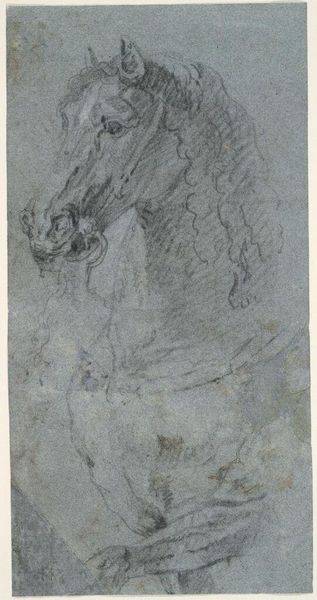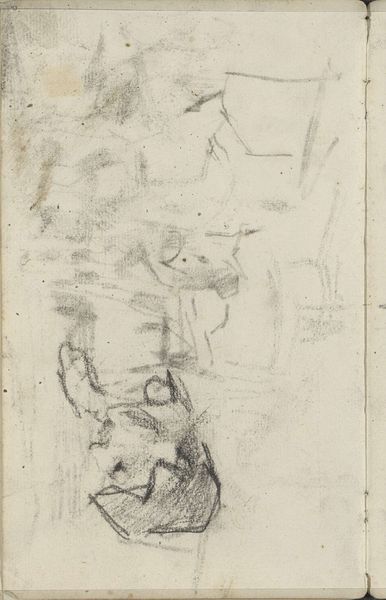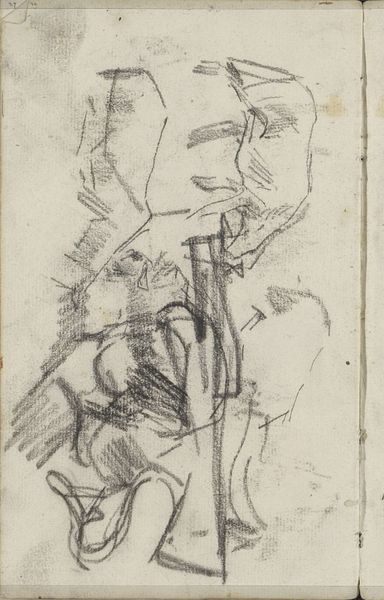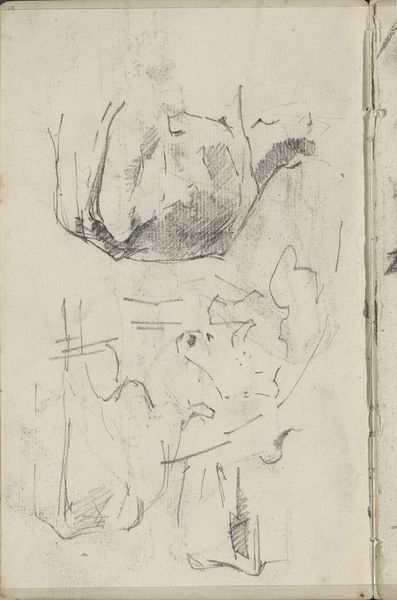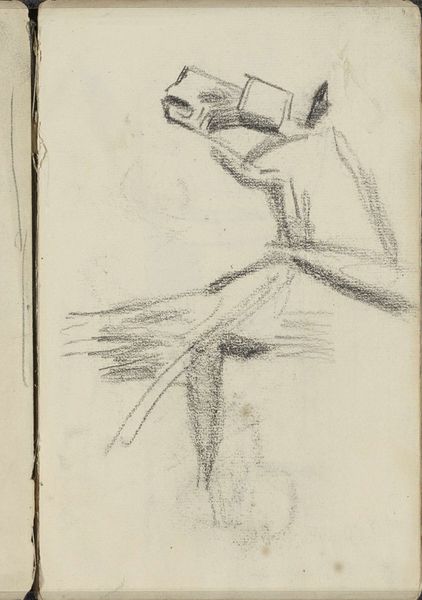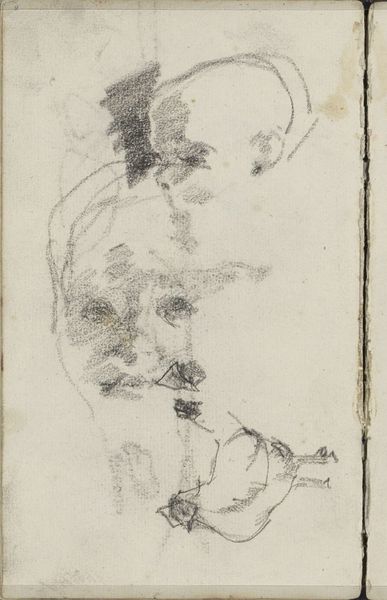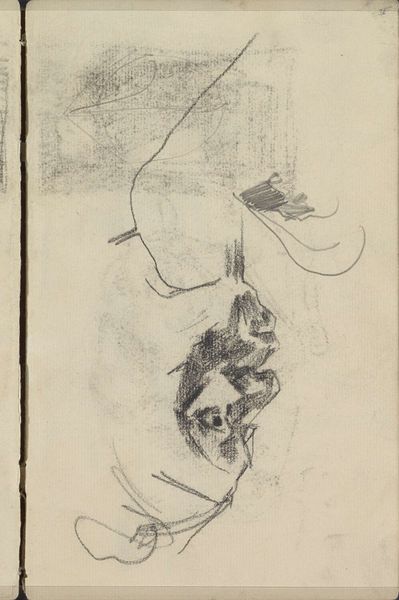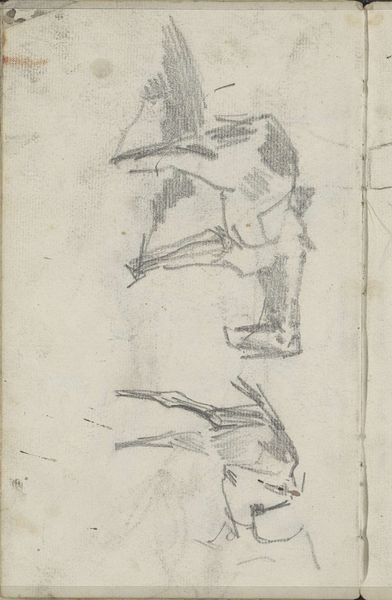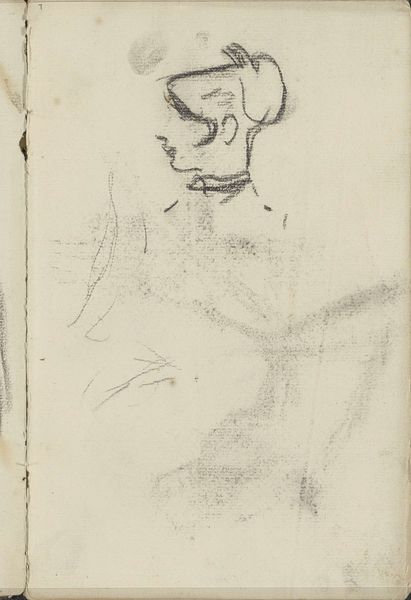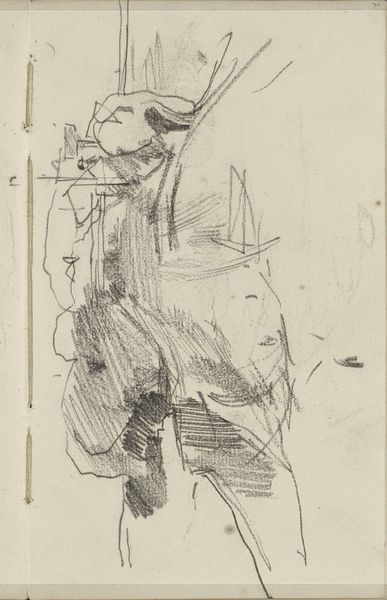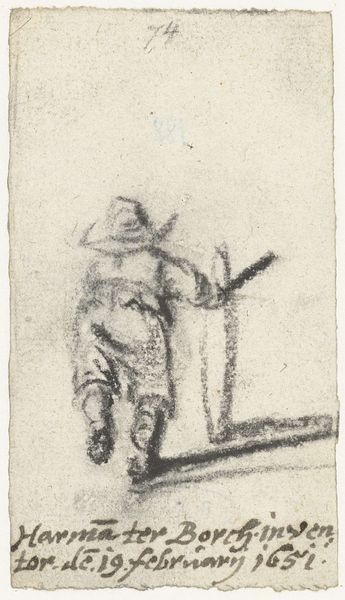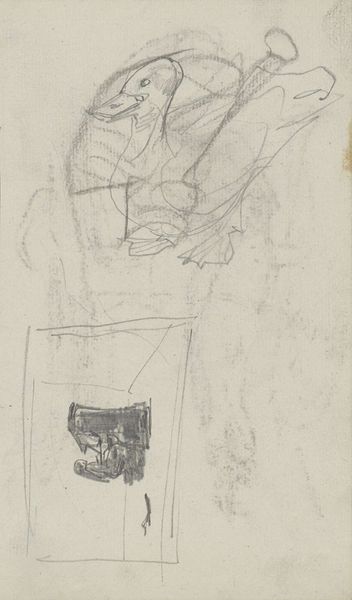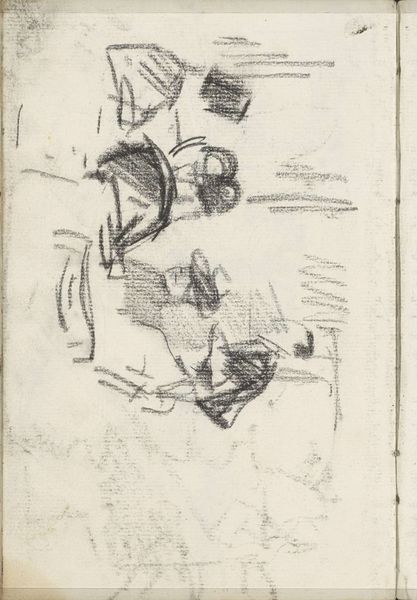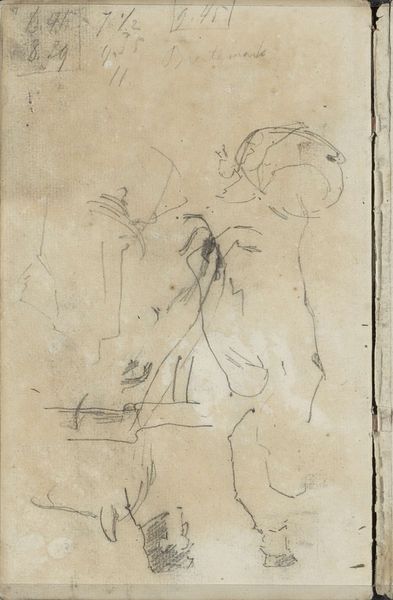
drawing, pencil
#
portrait
#
drawing
#
amateur sketch
#
light pencil work
#
quirky sketch
#
impressionism
#
pencil sketch
#
incomplete sketchy
#
personal sketchbook
#
detailed observational sketch
#
pencil
#
rough sketch
#
sketchbook drawing
#
profile
#
realism
#
initial sketch
Dimensions: height 196 mm, width 117 mm
Copyright: Rijks Museum: Open Domain
Editor: This is "Gezicht, naar links," a pencil drawing by George Hendrik Breitner from 1882, currently at the Rijksmuseum. It strikes me as quite raw and immediate, almost like a fleeting glimpse captured in a sketchbook. What are your thoughts? Curator: Looking at this piece, I'm immediately drawn to the materiality of the pencil and paper. Breitner's choice of these readily available materials suggests a democratization of art production. This wasn’t a commissioned portrait for the wealthy; it seems more like a study, an exercise. Think about the social context: sketching became more accessible in the 19th century due to the industrial production of affordable paper and pencils. How does this impact our view of the art itself, beyond mere representation? Editor: That's a good point. I hadn't considered the industrial aspect. It makes me wonder who the subject was. Curator: Exactly! The 'who' is tied to the 'how'. The lack of embellishment or idealization challenges the tradition of portraiture meant for public display or commemoration. The subject isn't presented as powerful or important in a conventional sense. Perhaps this drawing offers insight into the lives and realities of everyday people of the time, removed from idealized portraiture commissioned by the bourgeoise. Consider it as evidence of material social processes that informed art during this period. Editor: I see what you mean. Thinking about it that way, it's less about the individual and more about the conditions that allowed for this kind of representation. Thank you! Curator: Indeed. By understanding the tools and socio-economic elements in artistic creation, we open ourselves to analyzing an art piece beyond just aesthetic elements, thereby highlighting a broader range of interpretations.
Comments
No comments
Be the first to comment and join the conversation on the ultimate creative platform.
